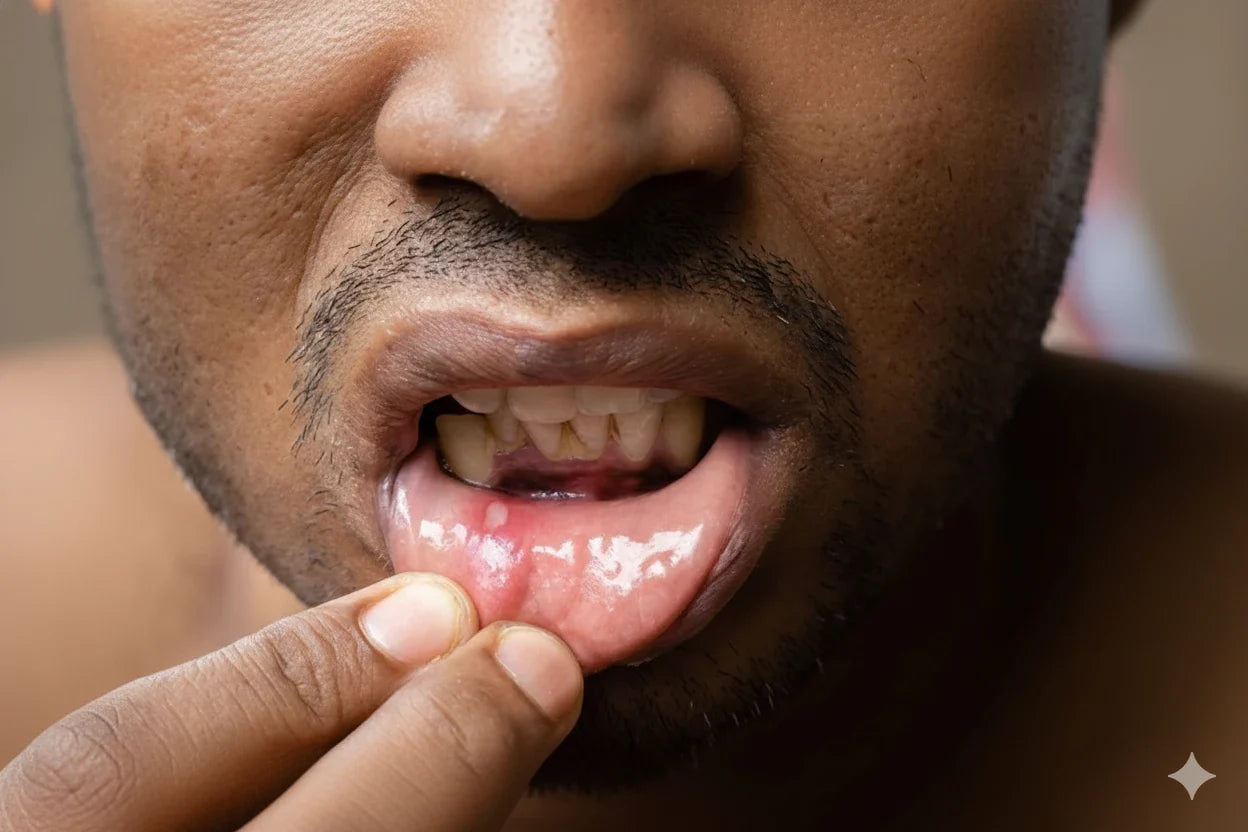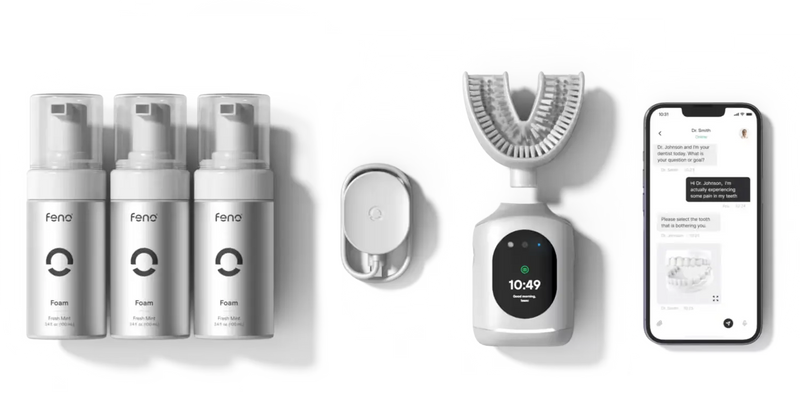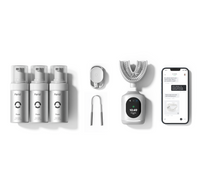
HIV/AIDS & Oral Health: Understanding Infection Risk and Protection
Essential Takeaways
- People with HIV face 30-50% higher rates of oral infections due to weakened immunity. Regular dental care every 3-6 months, excellent daily hygiene, and coordinated treatment between specialists are proven strategies to prevent complications and protect overall health.Retry
Why Oral Health Matters for People Living with HIV/AIDS
When HIV weakens the immune system, your body loses its natural ability to fight oral infections effectively. This makes the mouth particularly vulnerable to conditions like gum disease, oral thrush, painful ulcers, and lesions complications that can significantly impact your daily comfort, nutrition, and overall quality of life.
(Medicina, 2022)
What the Research Shows
Scientific evidence consistently demonstrates the serious oral health challenges faced by people with HIV/AIDS:
Oral candidiasis (thrush) affects 30-50% of people with HIV, making it the most common oral infection in this population. Prevalence rates vary depending on treatment access and CD4 count levels, but remain significantly elevated even in treated individuals compared to healthy populations.
Periodontal (gum) disease progresses much faster in people with HIV due to impaired immune responses. Clinical studies link lower CD4 counts with increased gum inflammation, accelerated bone loss, and more severe periodontitis. The immunosuppression caused by HIV creates conditions where gum disease can advance rapidly without proper intervention.
Painful oral lesions severely impact daily functioning affecting eating, speaking, and nutritional intake. Research shows that oral ulcers, herpetic lesions, and other painful manifestations are frequent in HIV-positive individuals and can worsen quickly, leading to weight loss, social isolation, and diminished quality of life.
Protective Steps
Medical and dental associations recommend these proven strategies to protect oral health:
Maintain excellent daily oral hygiene. Brushing and flossing are critical for people living with HIV, since infections can worsen quickly. The Feno Smartbrush™ can make this easier by delivering a consistent 20-second full-mouth clean and offering personalized health insights through Feno Plus app, helping you stay ahead of inflammation and spot early signs of oral issues between dental visits.
Schedule dental visits every 3-6 months (or as recommended by your healthcare team) to monitor for early signs of infection. Regular professional cleanings and examinations can catch problems before they become severe.
Address oral pain or swelling immediately. Don't wait. Infections can worsen rapidly in people with compromised immunity, and early intervention prevents complications.
Coordinate care between your HIV specialist and dentist to ensure safe treatment planning. This collaboration is crucial for managing medication interactions, timing dental procedures appropriately based on your immune status (CD4 count), and addressing any HIV-related oral manifestations effectively.
Bottom Line
For people living with HIV/AIDS, strong oral health is essential medical care. Alongside regular dental visits and medical coordination, technology like the Feno Smartbrush™ offers added support, making it easier to stay consistent with daily hygiene and detect potential issues earlier.

Feno Founders Edition Bundle
Advanced Oral Health in 20 Seconds with the Feno Smartbrush™
Get Yours Now!





